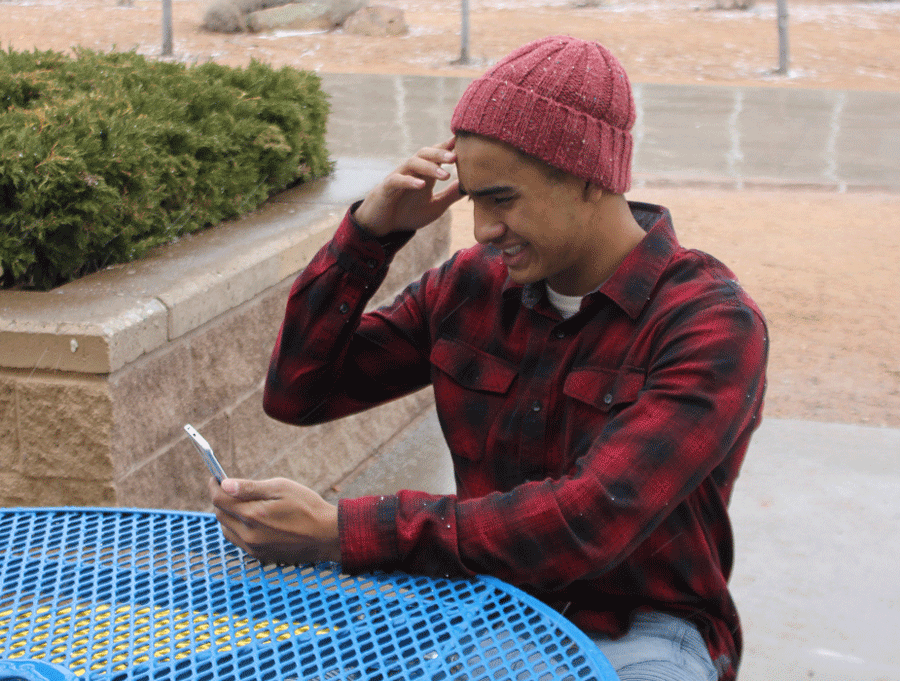Lives Destroyed, On the Internet and By the Internet
March 7, 2017
The Internet is a vast place where you can basically do anything. You can see what’s going on with the trendiest celebrities, interact with people across the world, look up the quickest recipe for kale smoothies, and even watch funny cat videos.
But the Internet isn’t just kale smoothies and cats. People’s reputations are made, as well as destroyed, on the Internet and by the Internet.
According to the Boston Globe, seventy-three percent of adults who go online are active on social media, the number rising higher to ninety-nine percent with people eighteen to twenty-nine years old.
David Greenfield is a psychologist and founder of the Center for Internet and Technology Addiction in West Hartford Connecticut. According to the Boston Globe Greenfield said, “The phone has become the predominant portal for Internet access,” he continued by saying, “ Which means you can do it all the time. There is literally no threshold.”
Cecil was a southwest African lion that lived in Hwange National Park in Matabeleland North, Zimbabwe. Cecil was a major attraction in the park and was being tracked by Oxford University in a larger study.
Walter Palmer, an American dentist, tracked and killed Cecil on July 1, 2015. Palmer, a recreational big game hunter, killed the lion with a bow and arrow and then skinned him and removed his head. This act sparked international outrage. In fact, the response was so negative that Palmer had to close his practice and lay low.
In September 2015, Palmer returned to work. He told the “Washington Post,”
“I’ve been out of the public eye. That doesn’t mean I’ve been hiding. I’ve been among people, family and friends. The location is really not that important, and I really wouldn’t say. But I haven’t been in hiding.”
Another example is Justine Sacco, a 30-year-old senior director of corporate communications at IAC.
According to the “New York Times,” as she was on her way from New York to Africa, she “began tweeting acerbic little jokes about the indignities of travel.” Some of these tweets were, “Weird German Dude: You’re in first class. It’s 2014. Get some deodorant. – Inner monologue as I inhale BO. Thank God for pharmaceuticals.”
Another tweet was: “Going to Africa. Hope I don’t get AIDS. Just kidding. I’m white!” Sacco only had 170 Twitter followers, but her tweets soon gained national attention, earning her the number-one worldwide trend spot.
As soon as she landed, she turned on her phone, which was immediately flooded with texts and missed calls from family and friends. The “New York Times” reported, “Sacco’s Twitter feed had become a horror show.”
Multiple people were tweeting her, talking about how racist she was and how she deserved to be fired. It was so widespread that the hash tag “#HasJustineLandedYet” was created.
Sacco was fired from her job about three weeks after the incident. She said, “All of a sudden you don’t know what you’re supposed to do. If I don’t start making steps to reclaim my identity and remind myself of who I am on a daily basis, I might lose myself.”
Sacco wasn’t the only person to face backlash on Twitter. Alicia Ann Lynch also took to Twitter and Instagram, posting a picture of herself as a Boston Marathon bombing victim.
According to the “Huffington Post,” “The cyber attacks on Lynch very quickly took a turn for the nasty.” A lot of information about Lynch circulated on the Internet, including her driver’s license, along with nude pictures and videos. Lynch was also fired from her job shortly after the incident.
But Lynch wasn’t the only one paying for her mistakes. Her family did as well. Shortly after the event she tweeted, “Plz stop with the death threats towards my parents. They did nothing wrong. I was the one in the wrong and I am paying for being insensitive.”
Pamela Rutledge who works at the Media Psychology Research Center in Boston, speaking on the topic to the Boston Globe says that, “ Social media doesn’t make us meaner or bolder. It just provides easy-to-access, very public outlet to air our opinions, without the worry of face-to-face confrontation.”


